Ditapis dengan

E-book HBR's 10 Must Reads on MANAGING PEOPLE
Managing people is fraught with challenges?even if you're a seasoned manager. Here's how to handle them. If you read nothing else on managing people, read these 10 articles (featuring “Leadership That Gets Results,” by Daniel Goleman). We've combed through hundreds of Harvard Business Review articles and selected the most important ones to help you maximize your employees' performance.
- Edisi
- -
- ISBN/ISSN
- 9781422158012
- Deskripsi Fisik
- 228 halaman
- Judul Seri
- -
- No. Panggil
- 658.401 HAR h
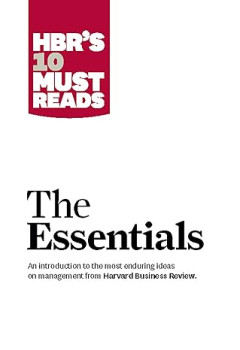
E-book HBR'S 10 Must Reads: THE ESSENTIALS
Change is the one constant in business, and we must adapt or face obsolescence. Yet certain challenges never go away. That's what makes this book "must read." These are the 10 seminal articles by management's most influential experts, on topics of perennial concern to ambitious managers and leaders hungry for inspiration--and ready to run with big ideas to accelerate their own and their compani…
- Edisi
- -
- ISBN/ISSN
- 9781422133446
- Deskripsi Fisik
- 235 halaman
- Judul Seri
- -
- No. Panggil
- 650.07 HAR h

E-book HBR's 10 Must Reads on MAKING SMART DECISIONS
Learn why bad decisions happen to good managers?and how to make better ones. If you read nothing else on decision making, read these 10 articles. We’ve combed through hundreds of articles in the Harvard Business Review archive and selected the most important ones to help you and your organization make better choices and avoid common traps.
- Edisi
- -
- ISBN/ISSN
- 9781422189894
- Deskripsi Fisik
- 193 halaman
- Judul Seri
- -
- No. Panggil
- 658.4 KAH h
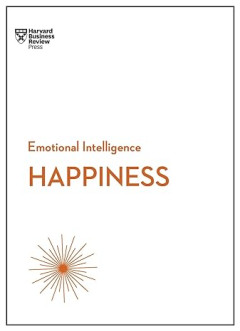
E-book Happiness (HBR Emotional Intelligence Series)
Achieving happiness while excelling at your career. What is the nature of human happiness, and how do we achieve it in the course of our professional lives? And is it even worth pursuing? This book explores answers to these questions with research into how happiness is measured, frameworks for personal behaviors, management techniques that build happiness in the workplace—and warnings t…
- Edisi
- -
- ISBN/ISSN
- 9781633693210
- Deskripsi Fisik
- 599 halaman
- Judul Seri
- -
- No. Panggil
- 152.4 HAR h

E-book Resilience (HBR Emotional Intelligence Series)
- Edisi
- -
- ISBN/ISSN
- 9781633693241
- Deskripsi Fisik
- 101 halaman
- Judul Seri
- -
- No. Panggil
- 155.25 GOL r
- Edisi
- -
- ISBN/ISSN
- 9781633693241
- Deskripsi Fisik
- 101 halaman
- Judul Seri
- -
- No. Panggil
- 155.25 GOL r
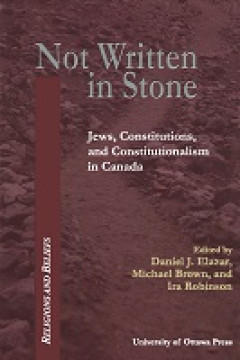
E-book Not Written in Stone: Jews, Constitutions, and Constitutionalism in Ca…
Using long-ignored constitutions of various Jewish organizations, this unique book uncovers the political history of Canadian Jewry since its beginning during the 1700s. Building on the premise that Jews, since time immemorial, have written down their values and ideologies, this study effectively demonstrates how these writings record the principles and values that motivated a community.
- Edisi
- -
- ISBN/ISSN
- 9780776605456
- Deskripsi Fisik
- 295 halaman
- Judul Seri
- -
- No. Panggil
- 302.17 ELA n
E-book How it Works: Amazing Technology 17th Edition (2021)
- Edisi
- -
- ISBN/ISSN
- -
- Deskripsi Fisik
- 164 halaman, ilus.
- Judul Seri
- -
- No. Panggil
- 600 PEE h
- Edisi
- -
- ISBN/ISSN
- -
- Deskripsi Fisik
- 164 halaman, ilus.
- Judul Seri
- -
- No. Panggil
- 600 PEE h
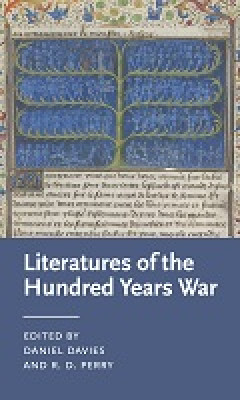
E-book Literatures of the Hundred Years War
This volume demonstrates how the Hundred Years War (1337–1453) provides a necessary context for late medieval literature. Many of the major writers of the period, in a variety of different languages, lived either all or most of their lives under the shadow of war, including Geoffrey Chaucer, Christine de Pizan, Giovanni Boccaccio and Bridget of Sweden. The essays collected here investigate ho…
- Edisi
- -
- ISBN/ISSN
- 9781526141095
- Deskripsi Fisik
- 409 halaman.
- Judul Seri
- -
- No. Panggil
- 936 DAV l 002896-eB-0122
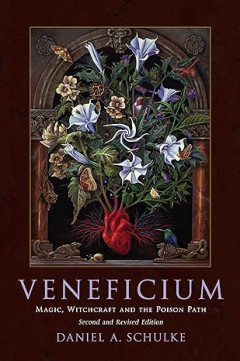
E-book Veneficium: Magic, Witchcraft and the Poison Path
In many esoteric traditions, there exists an iconic or linguistic corollary between the concepts of ‘poisoner’ and ‘sorcerer’, suggesting a sinistral magical kinship. Indeed, the use of plant, animal and mineral toxins is a strand of magic originating in remotest antiquity and reaching the present day. Beyond its mundane function as an agent of corporeal harm, poisons have also served a…
- Edisi
- -
- ISBN/ISSN
- 9781945147203
- Deskripsi Fisik
- 176 halaman
- Judul Seri
- -
- No. Panggil
- 133 SCH v
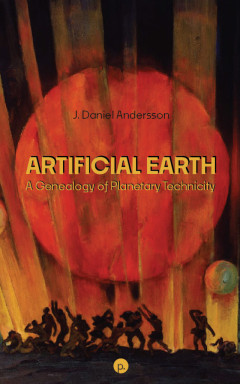
E-book Artificial Earth: A Genealogy of Planetary Technicity
Artificial Earth: A Genealogy of Planetary Technicity offers an intellectual history of humanity as a geological force, focusing on a prevalent contradiction in the Anthropocene discourse on global environmental change: on the one hand, it has been argued that there are hardly any pristine environments anymore, to the degree that the concept of nature has lost its meaning; while on the other, t…
- Edisi
- -
- ISBN/ISSN
- 9781685711306
- Deskripsi Fisik
- 349 halaman, ilus.
- Judul Seri
- -
- No. Panggil
- 522.19 AND a
 Karya Umum
Karya Umum  Filsafat
Filsafat  Agama
Agama  Ilmu-ilmu Sosial
Ilmu-ilmu Sosial  Bahasa
Bahasa  Ilmu-ilmu Murni
Ilmu-ilmu Murni  Ilmu-ilmu Terapan
Ilmu-ilmu Terapan  Kesenian, Hiburan, dan Olahraga
Kesenian, Hiburan, dan Olahraga  Kesusastraan
Kesusastraan  Geografi dan Sejarah
Geografi dan Sejarah